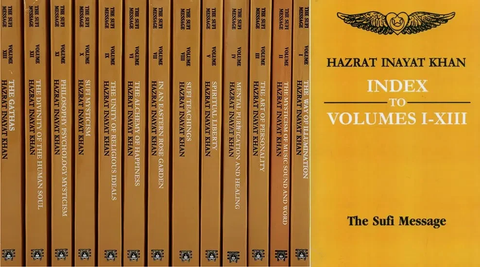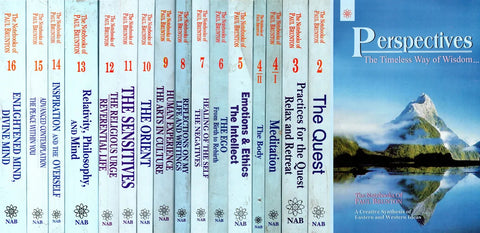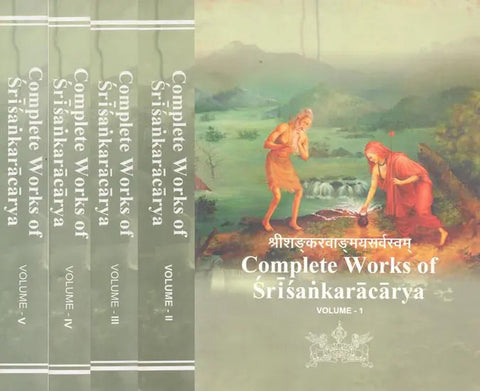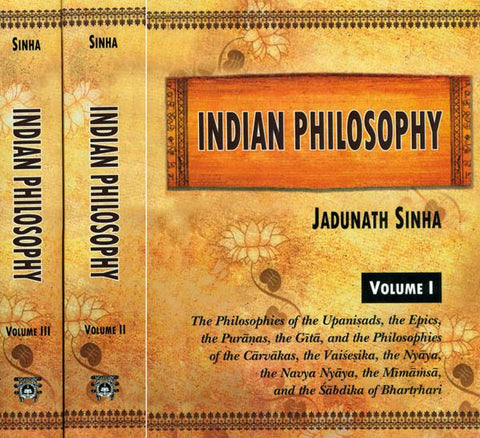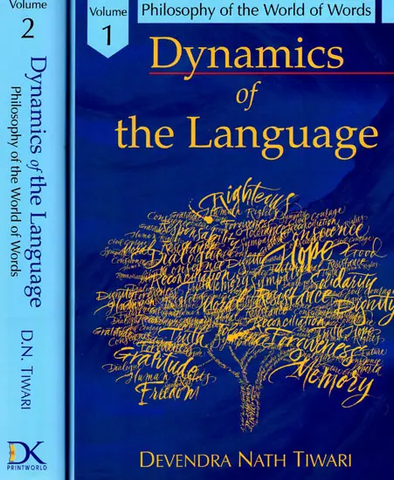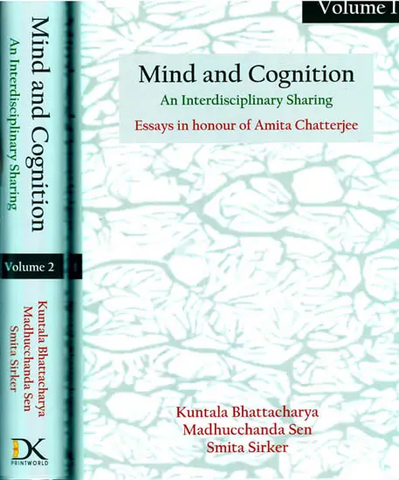Your cart is empty now.
David Lawrence's work, like all the volumes in this series, is both constructively philosophical (it has an argument of its own to make) and deeply engaged with the texts of a non-Western philosophical tradition in this case those of the monistic Saivites of Kashmir. It is difficult to separate the constructive and exegetical parts of Lawrence's work. This is as it should be, for Lawrence wants both to restate and to argue in support of the central metaphysical claim of his Indian interlocutors, which is that it is impossible coherently to deny God's existence. This goal makes Lawrence's work perhaps the most strictly metaphysical of those so far published in this series.
Lawrence provides, we think, the most detailed, accurate, and philosophically acute restatement of the central metaphysical claims of Utpaladeva and Abhinavagupta (the two principal theorists of the monistic Kashmiri Saiva school) yet available in any Western language. This is a great virtue because this school's theorists are the architects of a subtle, complex, and challenging metaphysical system. It is a system of great internal complexity, the full understanding of which requires mastery (or at least a very substantial knowledge) of almost every significant school of Indian philosophical thought. Abhinavagupta, especially, is remarkable for the range of his learning: in addition to the specifically philosophic theological works that are the focus of this study, he composed works on linguistics, grammar, ritual, dance, literary theory-and more. Understanding his work sufficiently well to interpret it adequately therefore requires substantial learning of a strictly Sanskritic kind, and Lawrence uses his own erudition and Sanskrit learning effectively to elucidate the complex intellectual context of Abhinavagupta's thought.
In fact, one may this simple proposition, which is often forgotten, should be placed at the beginning of every study which essays to deal with rationalism rationalize life from fundamentally different basic points of view and in very different directions. Rationalism is an historical concept which covers a whole world of different things.
-Max Weber, The Protestant Ethic and the Spirit of Capitalism
This book interprets the contemporary significance of the Pratyabhijna, "Recognition," apologetics for monistic Saivism of the Kashmiri thinkers Utpaladeva (c. 900-950) and Abhinavagupta (c. 975-1025). I will investigate the characteristics of the Pratyabhijna as philosophical discourse and the ways in which it advances Indian discussions of interpretation. The main Pratyabhijna theories will be presented as cogent argumentation of the transcendental or metaphysical variety, in that they demonstrate necessary truths, the denials of which are contradictory. These necessary truths include a kind of interpretive realism, as opposed to interpretive skepticism. They also comprise as integral to the realistic stance the existence and aspects of the nature of God, along with a way of experiencing God.
The first and chief task of this chapter will be the initial formulation of a problem and a methodology. I will review contemporary dilemmas about specifically crosscultural interpretation, such as those central to religious studies. Then I will adduce transcendental considerations, in certain ways anticipatory of the main substantive arguments, to the effect that comparative, "foundationalist" philosophical dialogue is the most critical means available for addressing these dilemmas.
Sample Pages
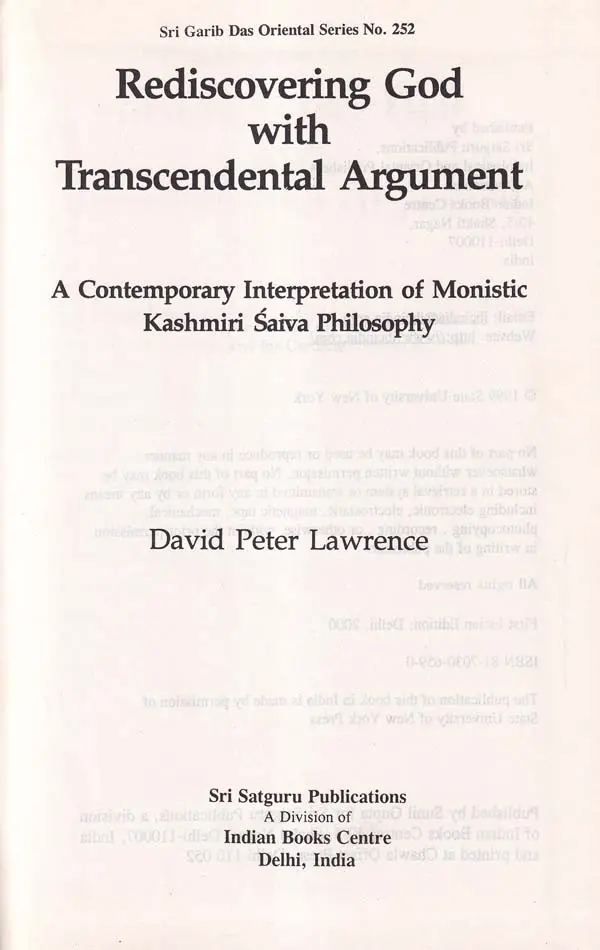
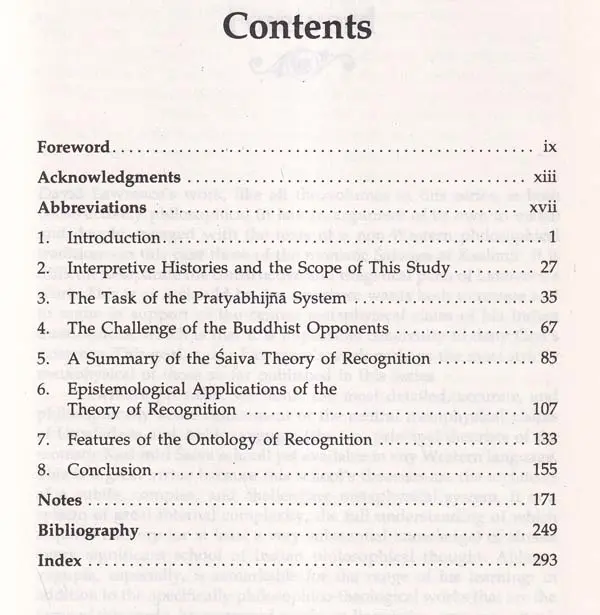
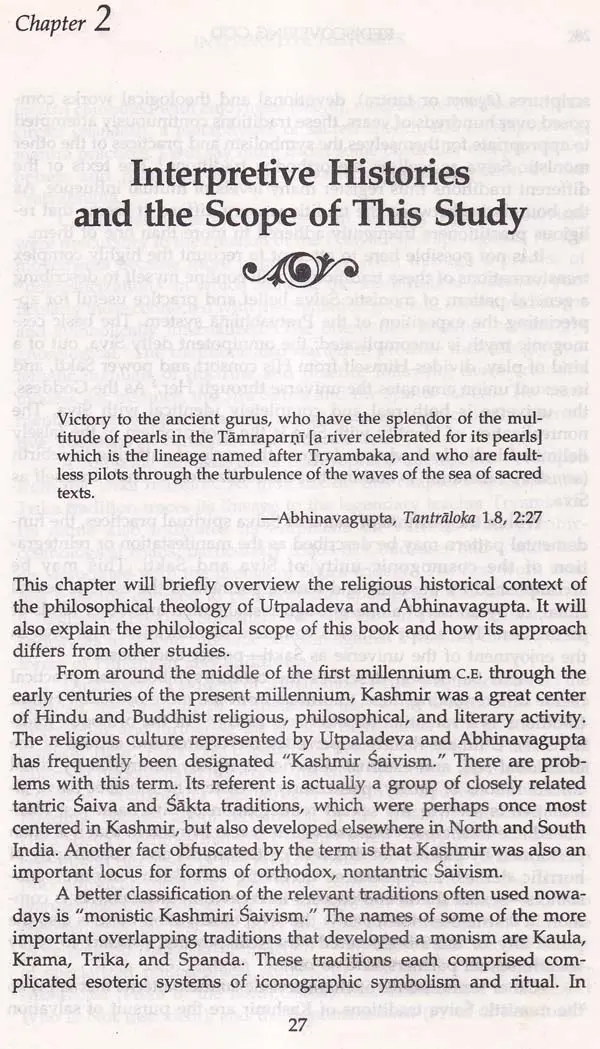
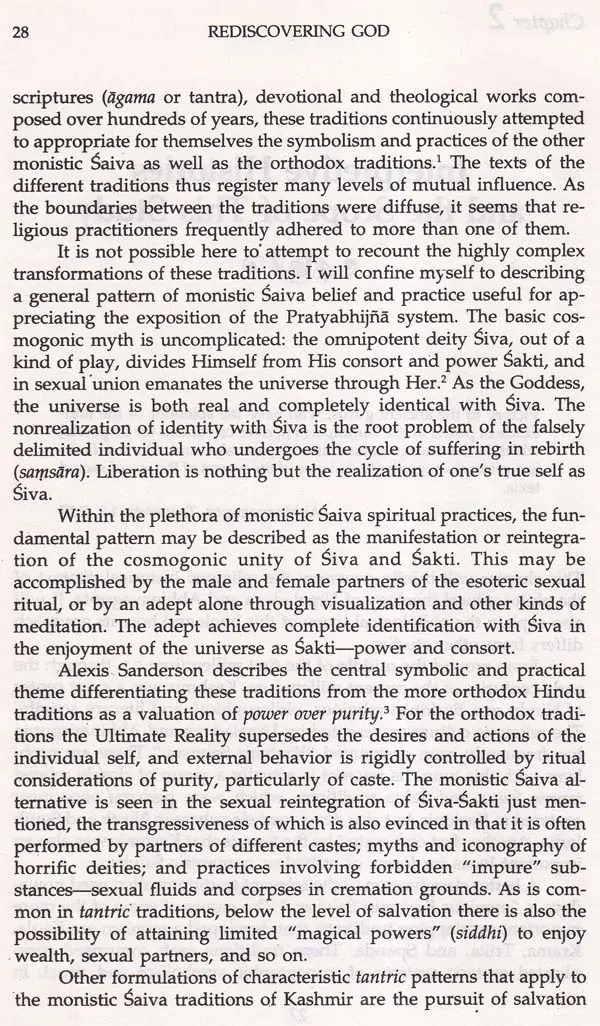
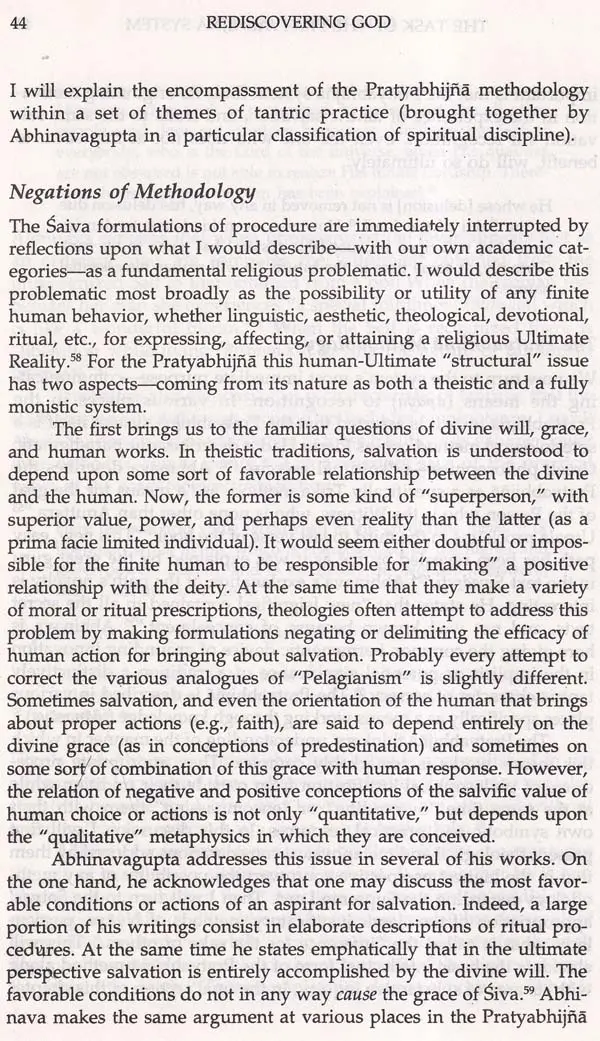
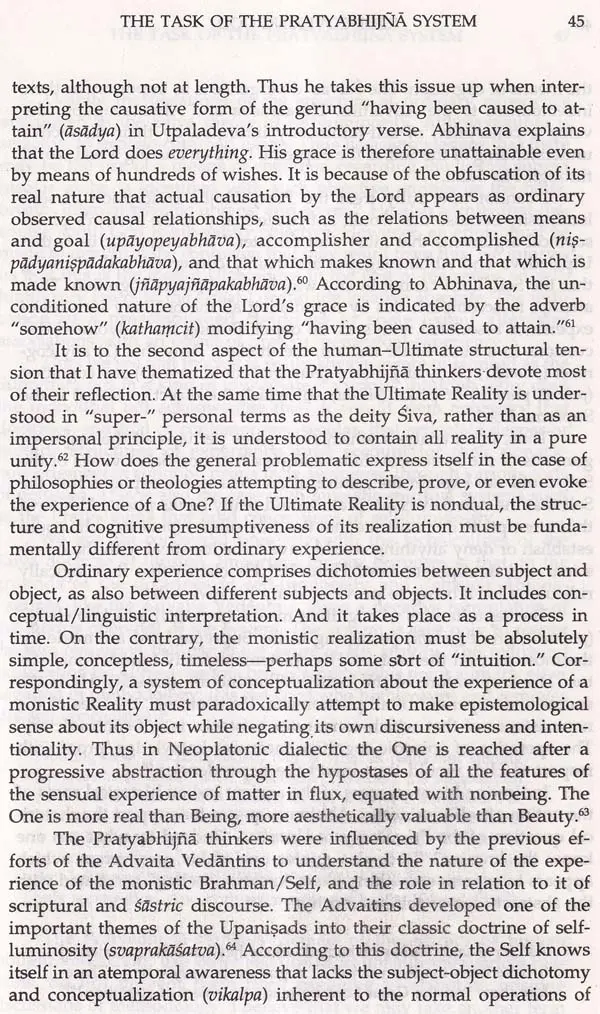
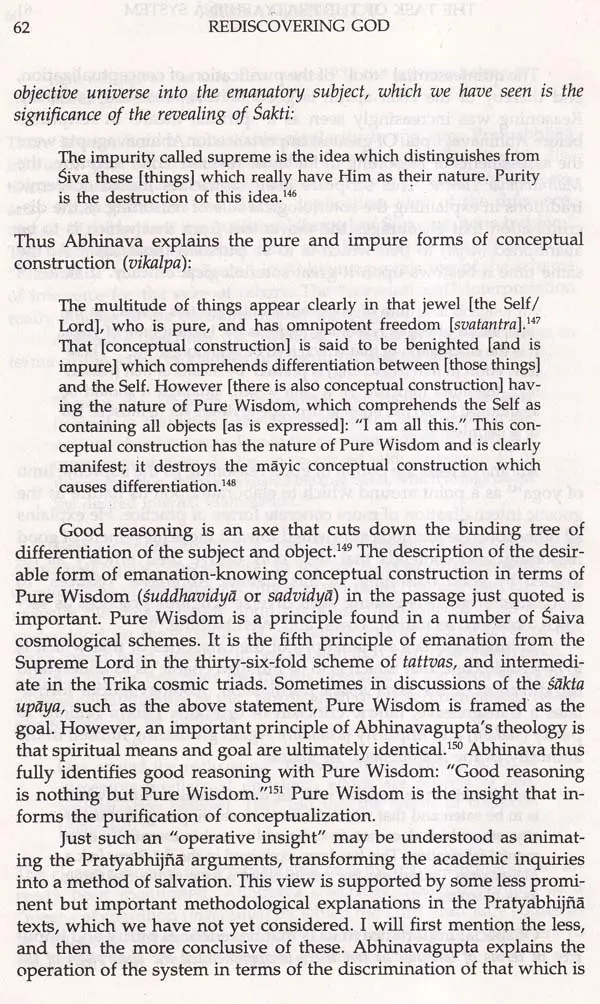
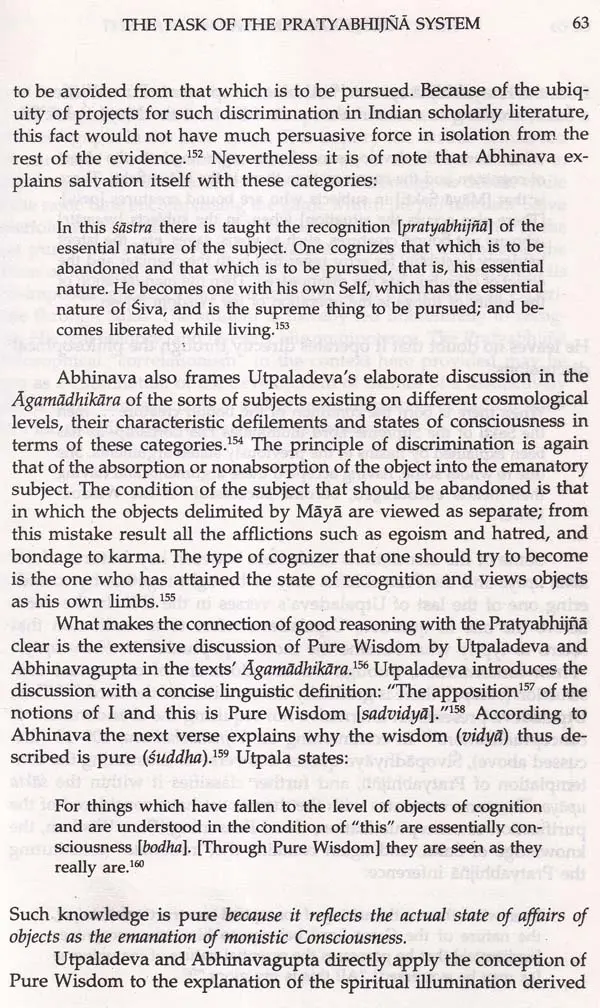
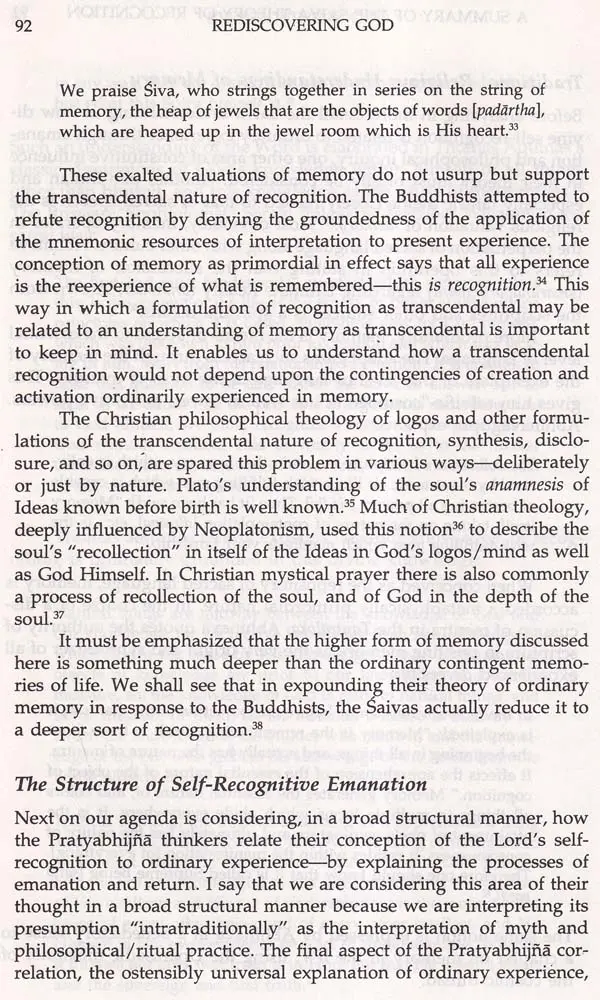
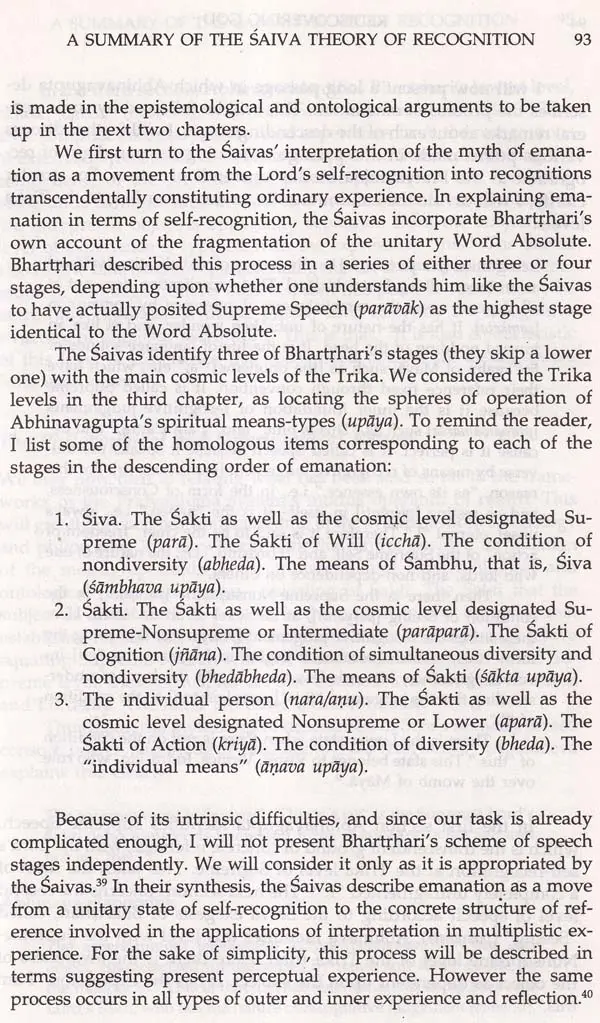
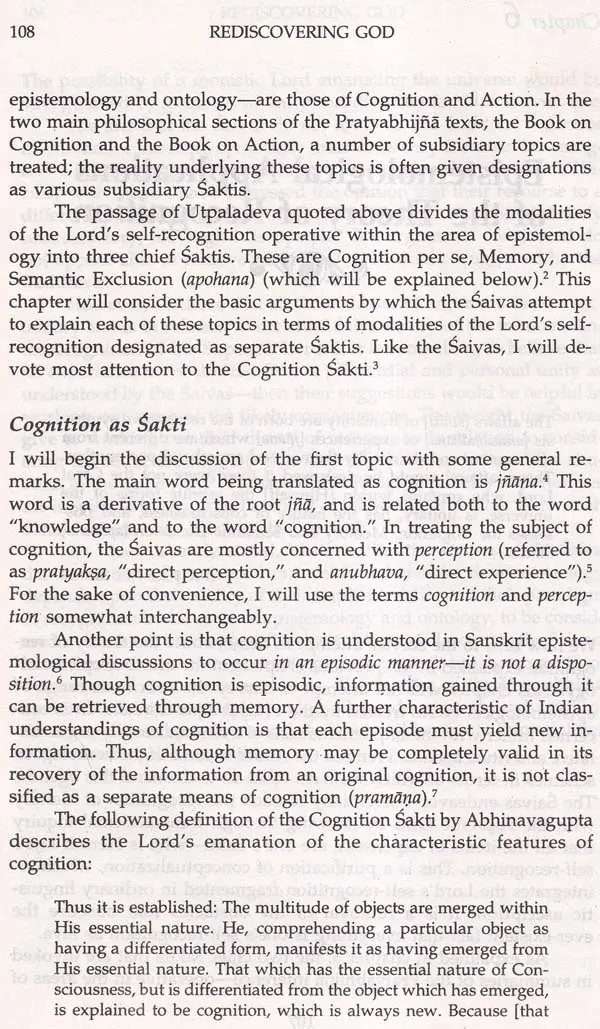
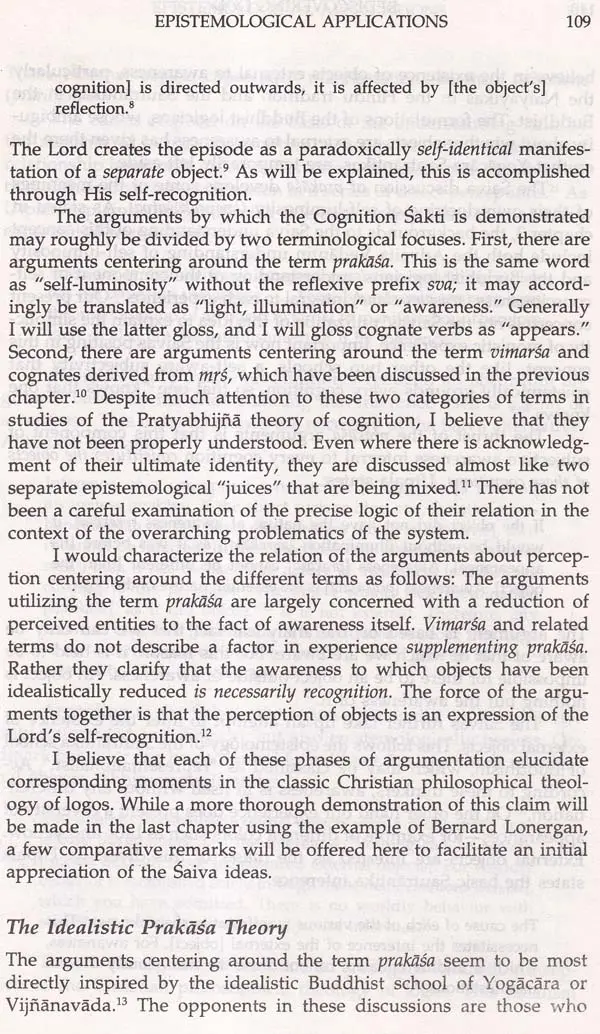
Delivery and Shipping Policy
- INTERNATIONAL SHIPPING
- Rs.1000-1100/kg
- ESTD. Delivery Time: 2-3 weeks (depending on location)
- Bubble Wrapped with Extra Padding
- NATIONAL SHIPPING
- NCR: Rs. 30/half kg
- Standard: Rs. 80/half kg
- Express shipments also available on Request
- ESTD. Delivery Time: Ranging from 1-4 days up to 7 business days (Depending on your choice of Delivery)
- TRACKING
- All orders; national or international, will be provided with a Tracking ID to check the status of their respective orders
- Depending on the Shipping Service, Tracking ID may be used on their respective tracking portals
Frequently Asked Questions (FAQs)
Domestic Shipping: 3-4 Days (after shipping)
International Shipping: 1-2 weeks (based on your location)
You will receive an email once your order has been shipped or you can email us if you didn't receive tracking details (info@mlbd.co.in)
Every book that we sell is the latest edition except all the rare books
Yes, we do provide free shipping, only on domestic orders (within India) above Rs.1500


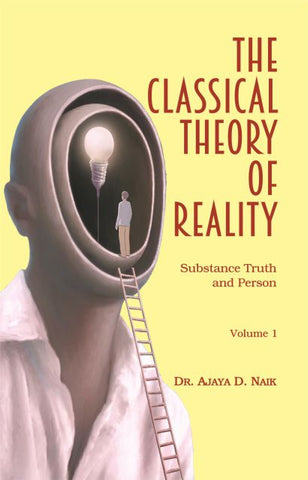
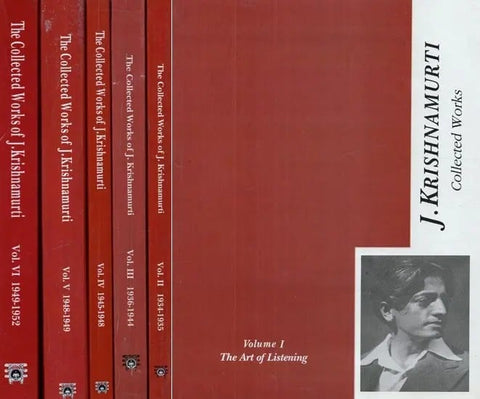

![A HISTORY OF INDIAN PHILOSOPHY [5 VOLUMES] by Surendranath Dasgupta](http://www.motilalbanarsidass.com/cdn/shop/products/HISTORYOFINDIANPHILOSOPHY_large.jpg?v=1675238163)
